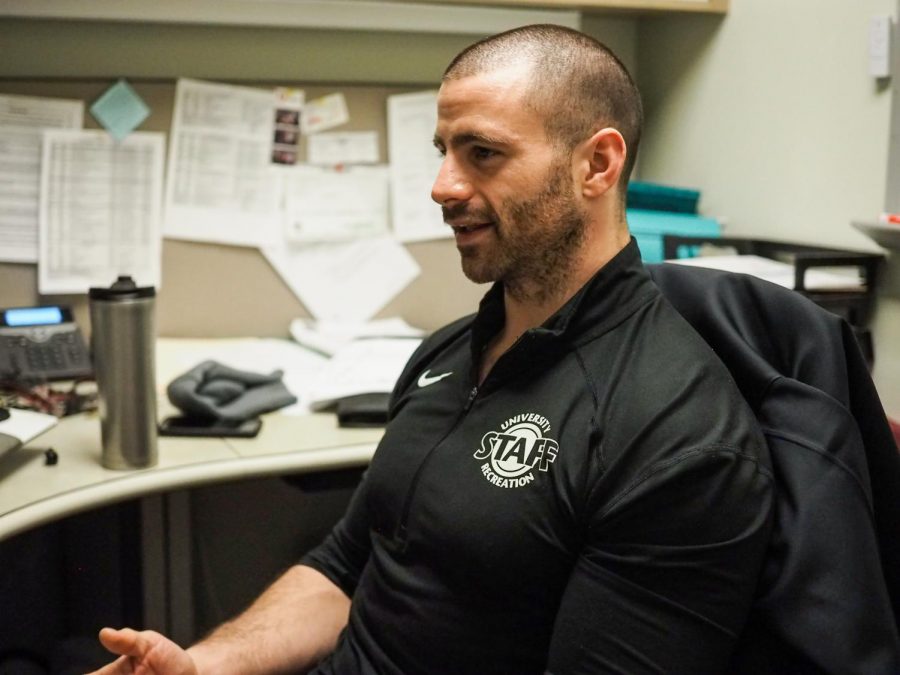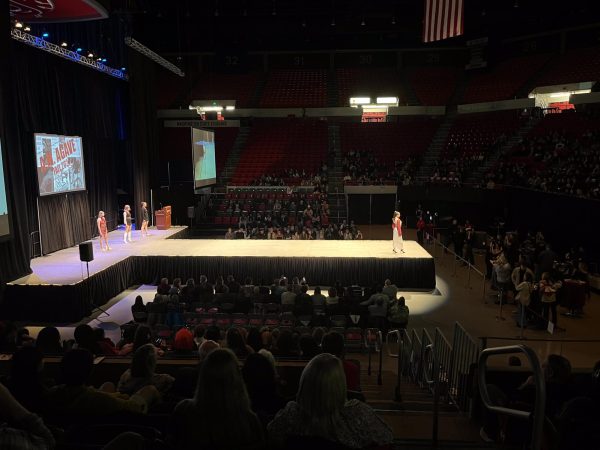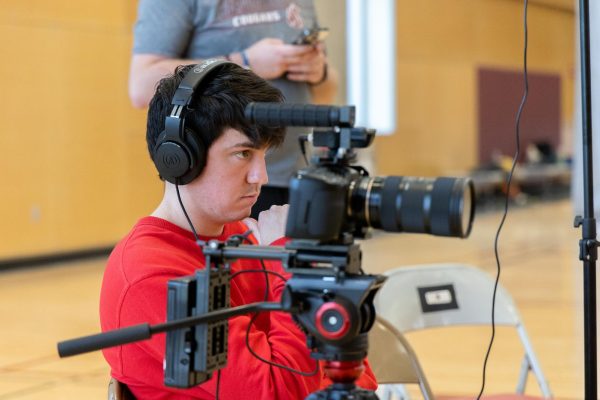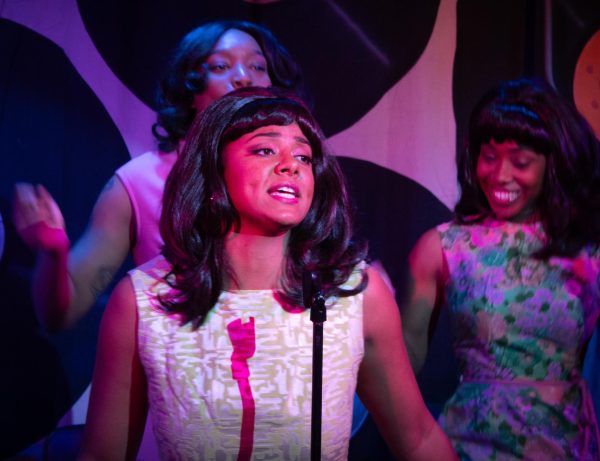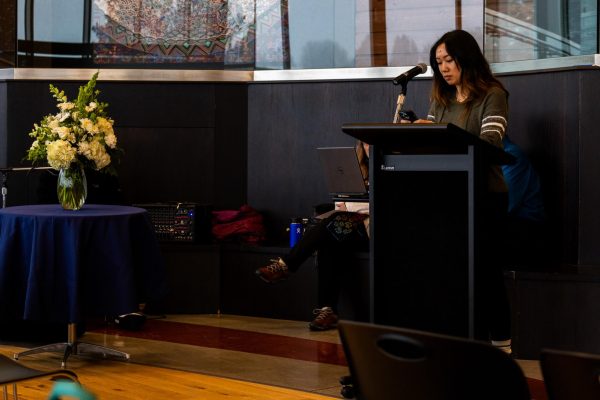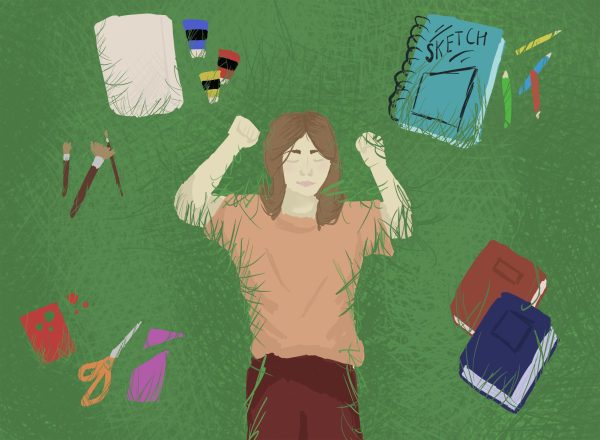While you’re down there, check for lumps
Men should check often for testicular, prostate cancer
Ramon Sodano, UREC Fitness Services and Education coordinator, discusses the importance of spreading awareness for men’s health issues, the steps one can take to better themselves, health-wise, and the cultural stigma against men being vulnerable on Friday morning at the Student Recreation Center.
November 20, 2019
“Men don’t take care of themselves. They’re taught ‘stuff it down, zip it up, shut up, rub some dirt on it and go,’” said Julius ‘Juice’ Rock, graduate assistant in University Recreation, personal trainer and weight room staff manager. “Let men have that place where they can open up and say ‘yeah, I’m hurting as a human being.’”
Testicular cancer, prostate cancer and mental illness are the largest areas of focus within the men’s health movement, Movember, Rock said. UREC provides workshops, information sessions and other resources annually during November to educate male students on these issues.
According to Rock, one of the workshops this November was called “Check Your Stones.” It allowed male participants to not only learn how to regularly monitor themselves for testicular cancer but how to lift Atlas Stones or “big, round concrete balls” as a way to increase awareness of men’s health issues through physical activities which men may be drawn to.
Much of the male student population falls within 20- to 34-year-old age range that is vulnerable to developing testicular and prostate cancers. These are health issues that may be more of a concern to college-aged males than they realize. In addition to these physical health issues, men’s mental health is an area that needs more attention in the public sphere, Rock said.
“In Western culture, boys are taught at a young age, suck it up and go forward, you gotta be tough,” Rock said. “We’re taught that being tough is what being a man is, so to say that there’s a crack in that surface because there are emotions going on, now you’re showing weakness.”
Many men in college are dealing with mental illness but cannot sort through their feelings openly. This could lead to problems later on such as substance abuse, physical abuse or other negative ways of dealing with their suppressed emotions, he said. Men who deal with compounding stress over time may also be more vulnerable to heart disease and stress-related death.
“This is the perfect time to learn how to be aware,” Rock said. “At this age, 18-25, you’re setting permanent patterns for your life.”
Even if a male student did not have to handle any of the issues discussed in the Movember movement, this awareness towards men’s health is a tool that they can use far into the future, Rock said.
“To be a man is to be the role model that I want my children to see,” Rock said. “To do that, you have to be willing to be open, willing to hear criticism, hear praise, give criticism, give praise, take in the world and not shut the doors. It’s scary. It’s not easy.”
If men can let their guard down and try to worry less about what other people think, they will be better off, Rock said.
“I would really like young men to realize they can put down the facade of being tough all the time. You don’t have to outdrink me, cuss me, do any other thing better. Just be a friend, make a connection with another human being that isn’t surface [level],” Rock said.
Being in college can be stressful for all students, but UREC offers many programs for students to try to become more aware of their mental health. Male students should be encouraged to try yoga, meditation and mindfulness, Rock said.
“Obviously, it’s about men’s health awareness and the typical things that men are dealing with,” said Ramon Sodano, UREC Fitness Services and Education coordinator and kinesthesiology adjunct professor. “But I think one of the main things is really developing this culture that it is okay to talk.”
Despite society’s evolution in terms of mental health destigmatization, men still deal with the generational pressures of keeping their emotions bottled up and to themselves, Sodano said.
“You do need to talk about your depression, the anxiety, these other things that are happening to you and it’s okay. It’s happening to everybody else and having movements like Movember lets them see ‘oh, I’m no different than everybody else’ and it makes it a little bit easier,” Sodano said.
This sense of community among men is crucial to addressing the societal issues surrounding men’s health, Sodano said. Taking time to find the right group of people, through sports, clubs or other areas, to support each other and build real, open relationships is important for men.
“If you’re vulnerable and able to illustrate those things, it, for lack of a better term, it makes you more of a man,” Sodano said.
Encouraging men to build a community where they can be open emotionally can also lead to openness towards their health struggles, whether related to cancer, mental illness or any other burden they may have, Sodano said.
“It’s not only affecting you, it’s affecting the individuals around you. If you take too long to find out about a certain diagnosis that could possibly be fatal, and maybe it could’ve been prevented or at least mitigated to some standpoint before you took to the very last second to get it checked out, that’s not just hurting you,” Sodano said. “It all comes back to you. You have to take the initiative.”
For more information, the Movember and American Cancer Society websites provide more resources and statistics about men’s health and the movement.


